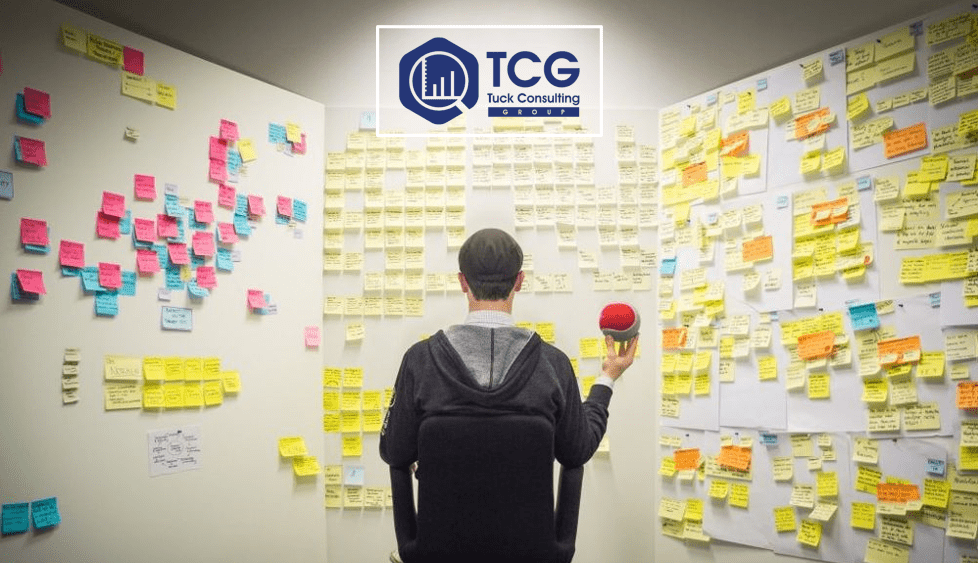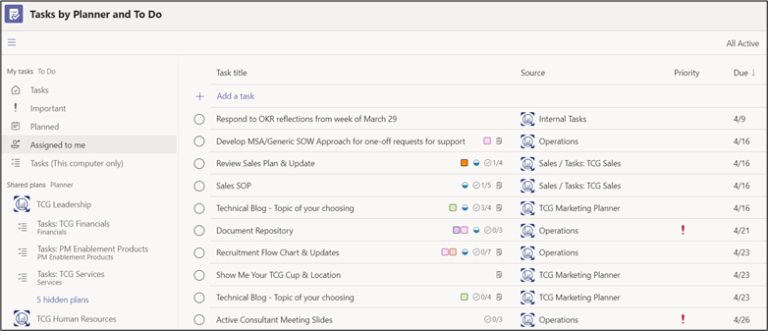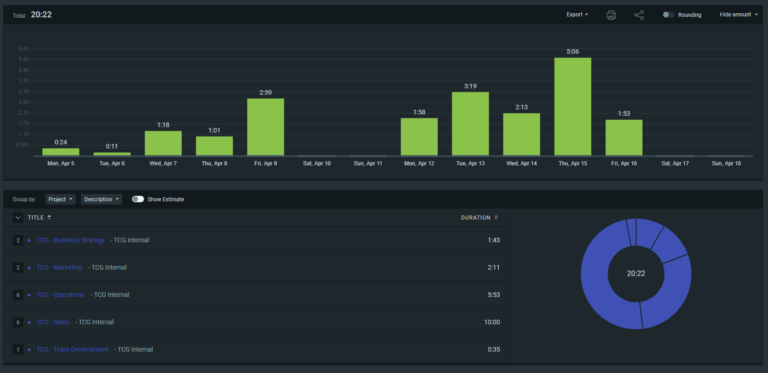
TCG consultants enable their clients to execute projects on time and on budget. Our project management professionals break down a large, complicated initiative with multiple stakeholders into discrete tasks and workstreams for each team member. It’s a both a science and an art: while our consultants usually share a technical background with their clients, they have to intuit how to keep team members coordinated, communicating with each other, and delivering their work products on time.
A project manager will enhance almost any project. Within TCG’s [small] operations department, we joke about how we could us a project manager for our own initiatives.
Project managing oneself is a critical skill for knowledge workers. For those of us who are habitually disorganized, it’s critical to find strategies to compensate. Luckily for me, I work among project management professionals. While I cannot say that I have adopted all of their best practices, I’ve picked up a couple that are proving to be game-changers. Here are some that you can apply right away:
Deep Work Sessions
Georgetown University professor Cal Newport coined the term “deep work” to describe “cognitively demanding activities that leverage our training to generate rare and valuable results, and that push our abilities to continually improve”. We’ve all done deep work, generally for things that we value. Hopefully, your “deep work” is what you’re being paid to do. When I make an appointment for deep work on my calendar, I’m making a commitment to focus on one thing [specified in the appointment] for 60-90 minutes. A task might take multiple sessions of deep work to complete, but in the end, the product reflects my best efforts.
Tasks by Planner (Microsoft Teams app)
TCG is a Microsoft partner, and we love Teams. As a sales professional, I’m always working to align my pitch decks and proposals with my technical colleagues’ latest engagements. Teams allows us to manage documents, files, and conversations in a secure cloud environment. Microsoft Planner can integrate with Teams through the Tasks by Planner app. After installing it, I can see my open tasks in checklist form whenever Teams is open on my workstation. As much as I dislike long checklists (see above), this feature has replaced my daily ritual of opening up my calendar in Outlook.

Clockify
TCG consultants generally use the website clockify.me to track time. TCG employees use clockify.me to track time spent on various tasks – billable and non-billable. After a few weeks of use, I can visualize how much time I am devoting to a particular project or task. When I can see how long it takes me to complete a repeatable task (like writing blog entries), I can find ways to optimize my performance or allocate time in the future. Going back to Cal Newport, tracking my hours lets me identify when I am most likely to engage in deep work. This helps me feel more in control of my productivity.

While we can all use a project manager, sometimes we must serve as our own. One of the advantages of living in the information age is how easy it is to find tools to manage our time, our tasks, and ultimately, our workday. What tools and strategies are you using?


